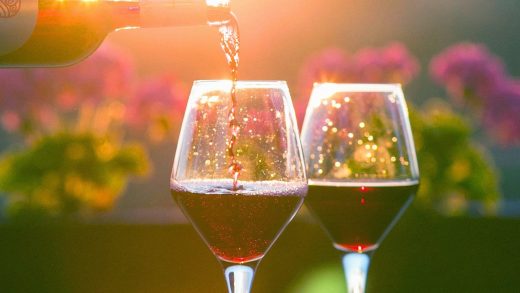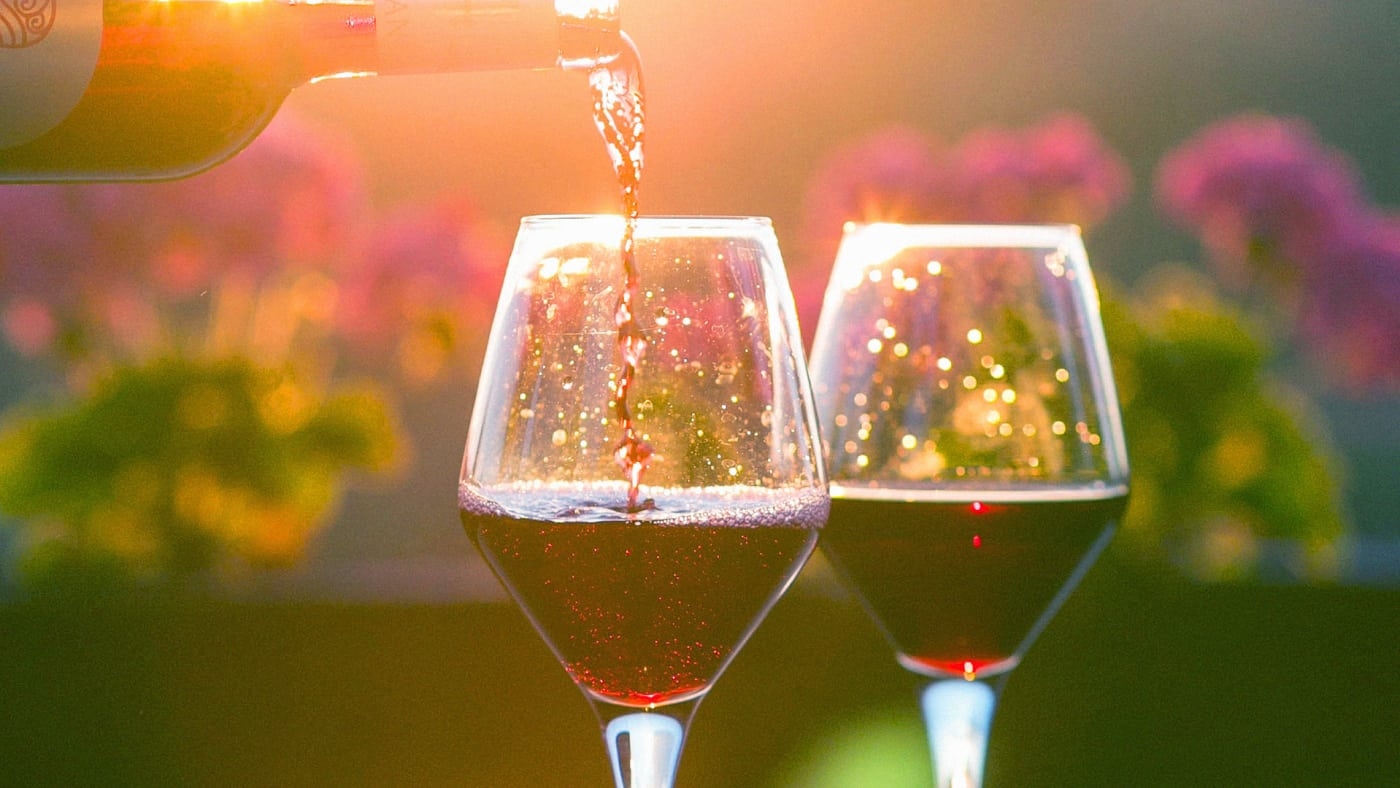Why Women Are Leading The Growing Natural Wine Movement
“I still get asked all the time: You’re doing this by yourself?”
Winemaker Sonja Magdevski describes the response she frequently receives despite having founded Casa Dumetz, one of the leading boutique labels in natural wine. That’s because the industry, like too many others, has long been considered a “boys club.”
Now, though, that’s changing. Magdevski, along with dozens of other female founders, is working to redefine who and what constitutes a winemaker, specifically through the emerging market dedicated to organic ingredients and sustainable practices. Like organic food, natural wine is considered the better, cleaner choice. Producers rely on organically farmed grapes with minimal intervention, i.e., no chemicals or sulfates.
“The wine doesn’t need them,” says Magdevski, stressing that if the grapes are good, “there isn’t much you need to do to them.”
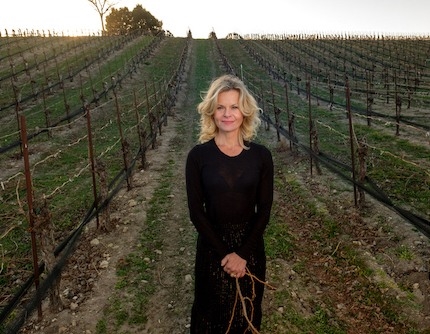
Magdevski opened the Santa Barbara-based Casa Dumetz back in 2004. With a focus on organic, small-batch wines, she grew it into an industry darling with standouts such as a grenache-syrah blend titled The Feminist Party ($36).
At a recent tasting at Vinovore, a Los Angeles store that only sells female-produced wine, over 30 wine enthusiasts bombard Magdevski with questions: Does her product have any sulfates? Where were the wines grown? How long can I keep it before it goes bad? And why were there only 100 cases made?
“You can’t make very much of it,” explains Magdevski.
With such clean ingredients, the end product isn’t as stable as it’s more traditional counterparts, and therefore needs to be sold relatively soon after production. Such limiting techniques bar Casa Dumetz from selling cases by the thousands, though that doesn’t concern Magdevski: The winemaker’s sales grew grown 15% year over year in the last five years as natural wine grows in popularity.
Magdevski’s success is one of many stories within this industry subsector, which witnessed an uptick in female leadership and consumption in the last decade. In fact, Vinovore shop founder and certified sommelier Coly Den Haan estimates that over 90% of her shop’s inventory is natural wines.
“It’s kind of by default,” she laughs.
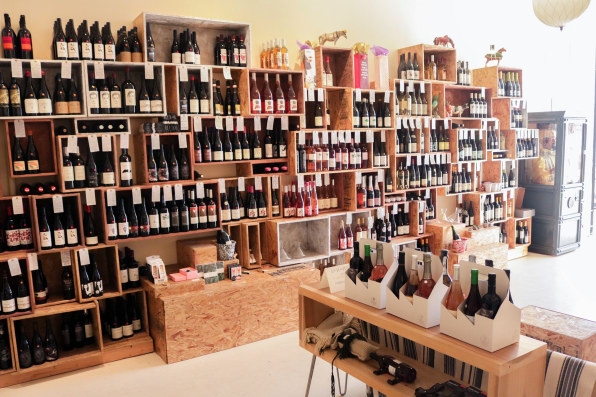
The Case For Natural Wines
Wine deemed organic, biodynamic, sustainable, or natural–terms often used interchangeably–isn’t anything new. It’s basically the original way of making wine. The definitions involve both the environment (how the grapes are tended to, without artificial chemical fertilizers, pesticides, and herbicides) and the winemaking process (with limited or no added chemicals/sulfates).
Some might subscribe to all intervention-free limitations, or just a few, which makes the category often hard to certify. There is no single unified certification program, with wineries often slapping vague self-proclaimed labels on bottles, or subscribing to numerous accreditation programs.
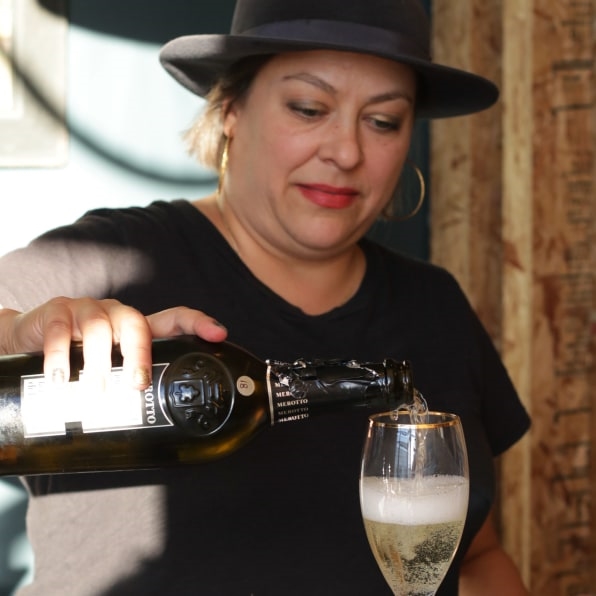
Still, the notion of “healthier wine” has gained popularity with consumers looking to improve their intake, be it organic vegetables, supplements, or kombucha. A Mintel study found that 60% of millennials and 55% of Gen-Xers are concerned about harmful ingredients in their food and groceries.
“People are becoming very globally conscious,” explains Den Haan, who sees customers interested in both health and environmental issues. “Pesticides are not good for the environment and not good for our bodies.”
David Falchek, executive director of the American Wine Society, says consumers increasingly expect purchases to reflect their values, “and wine is no exception.” Much like supporters of the craft beer scene, they want to know how their beverages are made, and often feel more drawn to small-batch producers with a feel-good narrative.
While organic represents less than 5% of the U.S. wine industry, it grew at rates between 10% and 20% per year in volume from 2013-2016, according to Nielsen. In the last decade, the number of organic vineyards tripled worldwide. Female consumers are believed to be a strong component of its success, though the public might sooner associate wine with its founding fathers.
As Den Haan explains, there’s often a stigma that wine is for “old rich stuffy white men with their cellars filled with Napa Cabs, and that’s just not the actual case of the industry.” Women outnumber men as the leading consumer of wine in both retail and restaurants, consuming 57% of bottles in the U.S, reports Nielsen. Of those, 51% of those aged 21-24 say organic factors in into their purchasing wine.
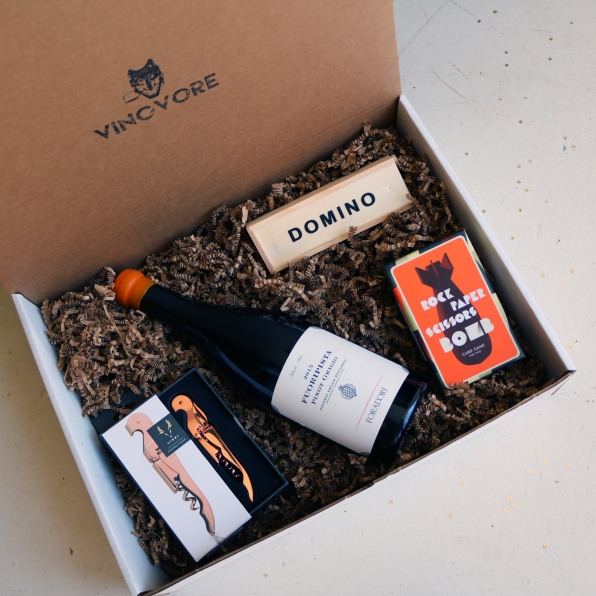
At L.A.’s Botanica restaurant and wine shop in Silver Lake, co-owner Heather Sperling only sells natural wines, of which 30% are female-founded. The restaurateur says she sees a tendency with female clientele to pursue healthier ingredients. (Several studies suggest women eat more nutritiously than their male counterparts).
“It’s the same qualities you look for in your vegetables,” she says.
Some, however, simply prefer the taste. Natural wine is generally lighter and tends towards a funkier, less manipulated consistency. A recent study conducted in conjunction with UCLA found that organic labels yielded higher taste ratings from wine critics. And at the 2017 International Women’s Wine Competition, the organic Elodie Cuvée Florale was named Best of Class Overall, beating its more chemically treated competitors. Others swear the chemical-free variations result in fewer hangovers.
“It’s not overly fussy,” says Sperling, who sees it resonating with millennials, who constitute 36% of wine drinkers, according to a report by Beverage Dynamics. “You can have multiple glasses and feel great because it’s lighter bodied and it’s fresher.”
The Future Is Female-Founded
Women are leading organic wine into the mainstream, with more winemakers, bar owners, and estate founders, among other positions. They’re not just closing the gender gap, but adding their own take on a market that has been mostly dominated by male tastes and sensibilities.
Coly Den Haan notices a difference in women’s winemaking, reflecting that it’s often more subtle, restrained, and elegant than it’s predecessors. “Women’s wine tends to use less of the winemakers’ bag of tricks as far as oak is concerned and different methods to manipulate the flavors of wine,” says Den Haan.
Isabelle Legeron is the founder of Raw Wine, a roving two-day festival of 600-800 biodynamic wines from all over the world. The celebration started with London in 2012 and has since traveled to Berlin, L.A. and several other major cities, with over 100 growers and roughly 3,000 visitors per festival.
The organizer is attempting to build an international community of like-minded winemakers. More and more, she sees women joining the ranks–as growers, journalists, shopkeepers–not just in natural wine, but in the industry overall. That’s due in part to a shifting paradigm of who constitutes a winemaker.
Magdevski says that in the past, women probably veered away from winemaking in part because of the physicality required. But in the last few years, her own community has seen 20 women join the effort, in part due to the trailblazers of the ’90s who paved the way for today’s generation.
The visible increase of women, notes Falchek, is partly because female winemakers went from nearly non-existent to a sizable–yet still underrepresented–margin today. He recalls attending conferences two decades ago in which attendees would ask the few female attendees if they were lost or try to automatically direct them to the marketing panel.
Women might also gravitate towards small, natural producers and local markets since larger operations have long been dominated by men. “It might be that these are smaller boutique operations and women have more opportunities there,” Falchek explains, “because for all the advances women have made in the cellar, there’s not parity–we’re nowhere near parity.”
Many, like Vinovore’s Coly Den Haan, endeavor to create their own spaces within the category. In 2013, Ann Rabin Arnold founded the Organic Wine Exchange, an organic wine club that’s now available in 13 states with a clientele that is 80% female. Last year, Stacey Khoury-Diaz, 29, opened Dio (short for Dionysus—the god of wine), a natural wine bar in Washington D.C.
Khoury-Diaz welcomes an influx of millennial customers coming to her space, a strong majority women, who are eager to learn more about the growing sector. It’s the same clientele Legeron sees flocking to her Raw Wine festivals.
Legeron believes that while awareness is growing, organic wine will likely remain a small, niche slice of the industry, much like raw milk or farmhouse cheese, in terms of production growth. Botanica’s Heather Sperling sees it differently. Based on her experience in L.A.–considered ground zero for health and wellness trends–she predicts it skyrocketing in the next few years. Mostly, says Sperling, because larger producers will co-opt it as a smart marketing move. “That’s my fear,” she says, adding, “and my hope.”
“There’s a lot of buzz about it but not just because it’s trendy,” says Sperling, noting its driven foremost by the industry, with consumers slower to catch up. “This has been a growing movement for decades– and it’s only getting stronger.”
Field agrees, believing organic wine is “at the tip of the iceberg” as more and more consumers, especially millennials, actively look for not only healthier solutions, but more distinct dining options. And seeing how women hold the power in the shopping aisle, they’re bound to hold the power on the creation side of it as well.
As Field says, “If the organic sector purchases are predominantly being decided by women, and the wine purchases are being done are made by women, it doesn’t make sense to not have women lead the way.”
Fast Company , Read Full Story
(23)

